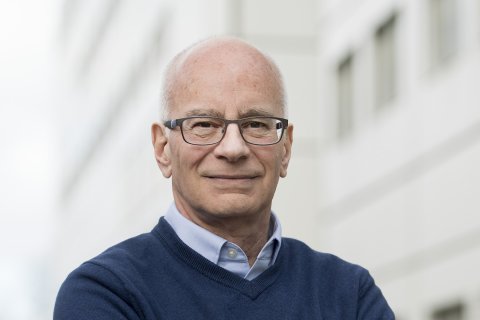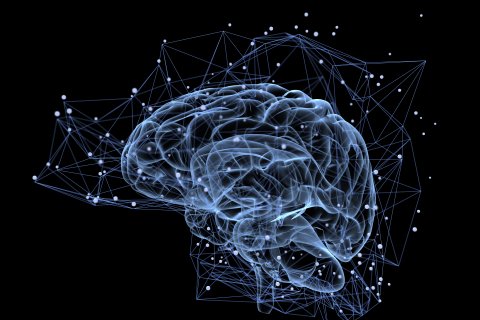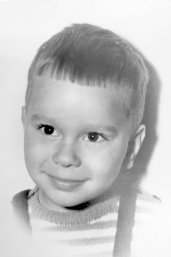"Our research questions come directly from the patient"
Neurobiologist Peter Burbach on the research project 'The first 1001 critical days of a child’s life'
Professor Peter Burbach is a neurobiologist and head of the Translational Neuroscience department of the UMC Utrecht Brain Center. As a researcher, he looks at the molecular mechanisms in the development of the brain. He brings his expertise to the interdisciplinary research project ‘The first 1001 critical days of a child's life’, which studies early brain and language development.

As a chemist, Peter Burbach developed a great interest in molecules, followed shortly afterwards by biology. He quickly developed a fascination for the brain. "What fascinates me about brains is how mysterious they are. The brain is one of those complex organs we still know little about. We are only just starting to understand what the brain is and what it does, and we're still a long way from understanding exactly how the brain works." Burbach considers it a huge challenge to contribute to answering this question. "The brain, a kind of biochemical machine, is crucial to how we live. I find it really fascinating."
Nowadays, we are doing things that we would never have thought possible at the time.
A single protein under the microscope
During his career, he has seen major changes in the field of biochemistry and in brain research. "You used to spend a lifetime studying a single protein in the brain. Nowadays, we are doing things at the UMC Utrecht Brain Center that we would never have thought possible at the time, partly because genome-related knowledge and technology has grown so immensely." According to Burbach, the approach is also completely different. "Our research questions come directly from the patient. Major themes develop from this, and the project 'The first 1001 critical days of a child's life' is an example of that."

Crucial stage of life
The early stage of life is very important for the brain. "The brain is still completely fresh and connections still need to be made and confirmed. At some point, the possibility of such a connection in the brain no longer exists. If a child does not come into contact with language during his/her first 1001 crucial days, it will be difficult to develop this later." In addition to the external impulses, Burbach also looks at the influence of the parents' genes. "Our brains are just as different as other external features that you can see on the outside, like our hair. And while our appearance is largely determined by genetic material, the same also applies to the construction of our brains."
If a child does not come into contact with language during his/her first 1001 crucial days, it will be difficult to develop this later.

Responding to professional demands
Burbach would like to find out more about the construction of the brain. "If we better understand how the brain works, we will be able to develop programmes to help babies." To this end, the research team collaborates intensively with social partners who frequently work with children with a language development disorder. "We literally ask them what they need." For example, this may be a training course in which professionals learn how to recognise and treat a language development disorder. "We find that the combination of our different fields of expertise allows us to offer much more knowledge."
Our enthusiastic team examines ways to make the best possible use of our knowledge.
Helping to increase understanding
According to Burbach, the strength of this research theme lies in the interdisciplinary approach. "Our enthusiastic team examines ways to make the best possible use of our knowledge and align it with that of our fellow team members." Burbach does so from the point of view of neurobiology, but there is also a speech therapist, a language development expert, a behavioural scientist and a psycholinguist. Sharing knowledge with the professional field is essential for Burbach and his team. "From a scientific point of view, we can not only identify language development disorders, but also help to increase understanding of language development disorders in society."
Rolling up their sleeves
The neurobiologist proudly calls the project a ‘constructive hub’. In his opinion, the team have long since grown out of the exploration phase. "We see completely eye to eye within this very broad topic. Now it’s time to roll up our sleeves and really get to work!" His ultimate wish for this project? "To change knowledge of early brain and language development from a sealed container to a beautiful bunch of flowers with a bow around it."

The first 1001 days of Peter Burbach
"My parents consciously experienced the war. I was born in the post-war reconstruction era. In my first phase of life, we lived in a very small, improvised apartment. I still remember going through a very protective upbringing, but it was really cosy, something my parents always were always trying to create."
Research theme Dynamics of Youth
If you want to tackle social problems, it would be best to start with children. The Utrecht-based research theme Dynamics of Youth invests in a resilient youth. Academics from all fields collaborate in order to learn to better understand child development. How can we help children and youngsters to grow and flourish in our rapidly changing society?

